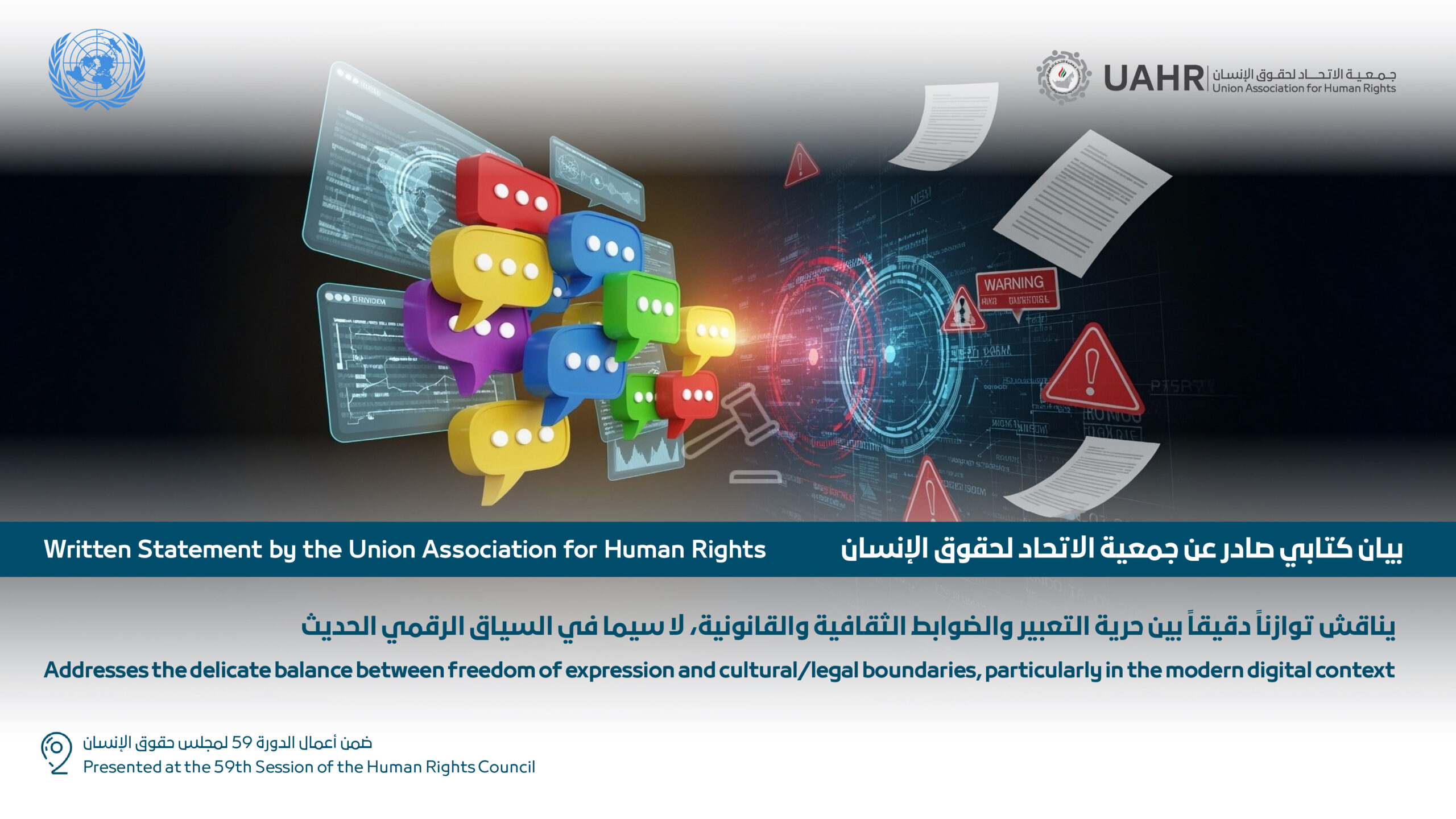08
Dec
2024
2025 | 59th session of the Human Rights | Human Rights Council | Written Statements
Freedom of Expression and Cultural Justice in the Digital Space: Towards International Governance of Content and the Protection of Human Dignity

About the Statement
Issued by the Union Association for Human Rights in cooperation with an organization holding consultative status, the written statement was submitted to the United Nations Human Rights Council at its 59th session (June–July 2025). It discusses the delicate balance between freedom of expression and cultural and legal constraints, especially in the modern digital context.
First: The relationship between freedom of opinion/expression and cultural rights
- The statement connects freedom of opinion/expression and cultural rights as pillars of human dignity and participation in public life.
- The statement connects freedom of opinion/expression and cultural rights as pillars of human dignity and participation in public life.
Second: Challenges of the digital space
- It highlights growing challenges in exercising freedom of expression online, especially with:
- The expansion of social platforms.
- The negative use of these platforms by extremist groups.
- Violations related to privacy and digital security.
- It warns that freedom of expression, if practiced without legal or ethical boundaries, may violate others’ dignity or destabilize public order.
Third: The required balance
The statement calls for balancing freedom of expression with social and legal responsibility, taking into account:
- Respect for reputation and dignity.
- Combating hate speech, violence, and racism.
- Protecting security and social peace.
Fourth: Accountability of major tech companies
- The statement urges expanding the legal framework for accountability to include:
- Major tech companies such as Meta, X, YouTube, and others.
- States that host or finance these platforms.
- It calls for a binding international convention defining the responsibilities of these companies and states in regulating digital content.
Fifth: Cultural justice in the digital space
- The statement criticizes Western dominance of the digital space, which results in:
- Marginalization of non-Western cultures.
- Violations of Arab cultural identity.
- It points out that Arab arts and participants have been subjected to digital abuse and defamation, calling for protection from “digital cultural violence”.
Sixth: Commendation of the UAE
The statement praises the UAE’s efforts in:
- Achieving an effective balance between freedom of expression and protecting cultural identity.
- Developing a comprehensive legislative framework, including:
- Federal Decree-Law No. 55 of 2023 on media regulation.
- The UAE Media Strategy.
- Federal Decree-Law No. 34 of 2021 on combating rumors and cybercrimes.
- Federal Decree-Law No. 34 of 2023 on combating discrimination, hate, and extremism.
Seventh: Recommendations, The statement calls on the Council to:
- Enact binding international legislation to protect freedom of opinion in the digital space within legal and ethical boundaries.
- Require states and digital companies to respect human rights principles.
- Hold governments and platforms accountable for digital violations against users.
- Strengthen digital security and individual privacy.
Importance of the Statement:
- It reflects an advanced vision of “digital cultural justice”.
- It strategically integrates the right to expression with safeguarding cultural dignity, particularly

